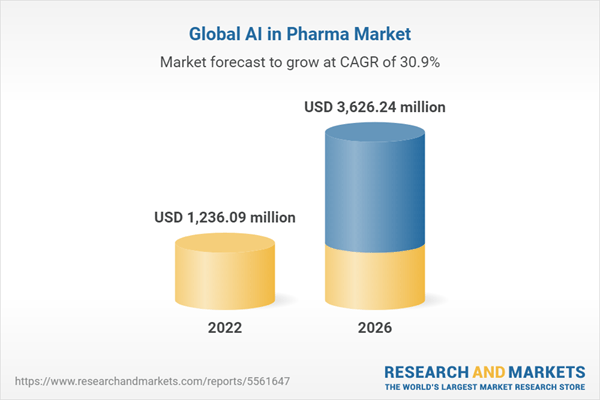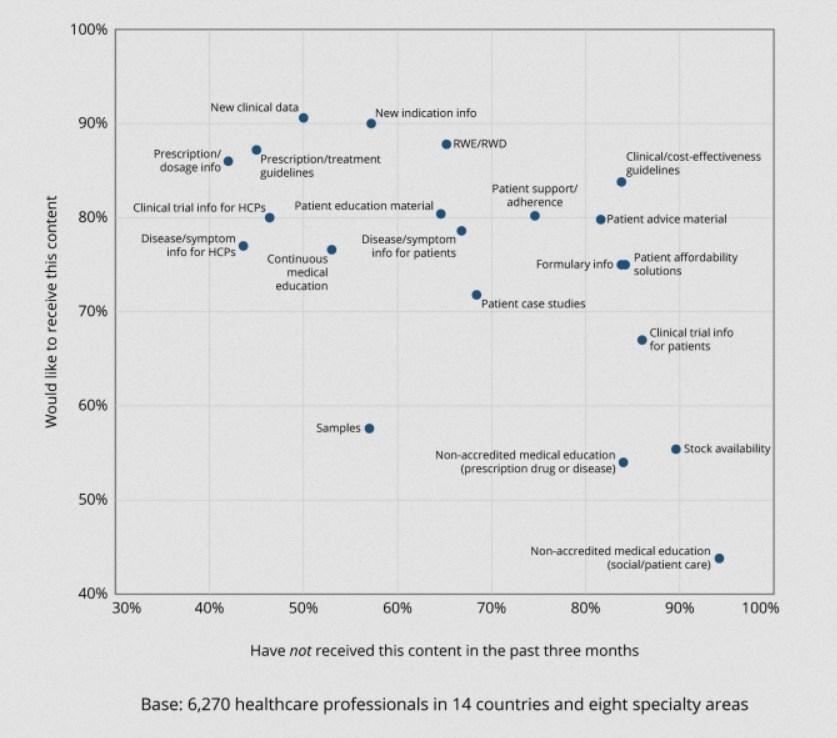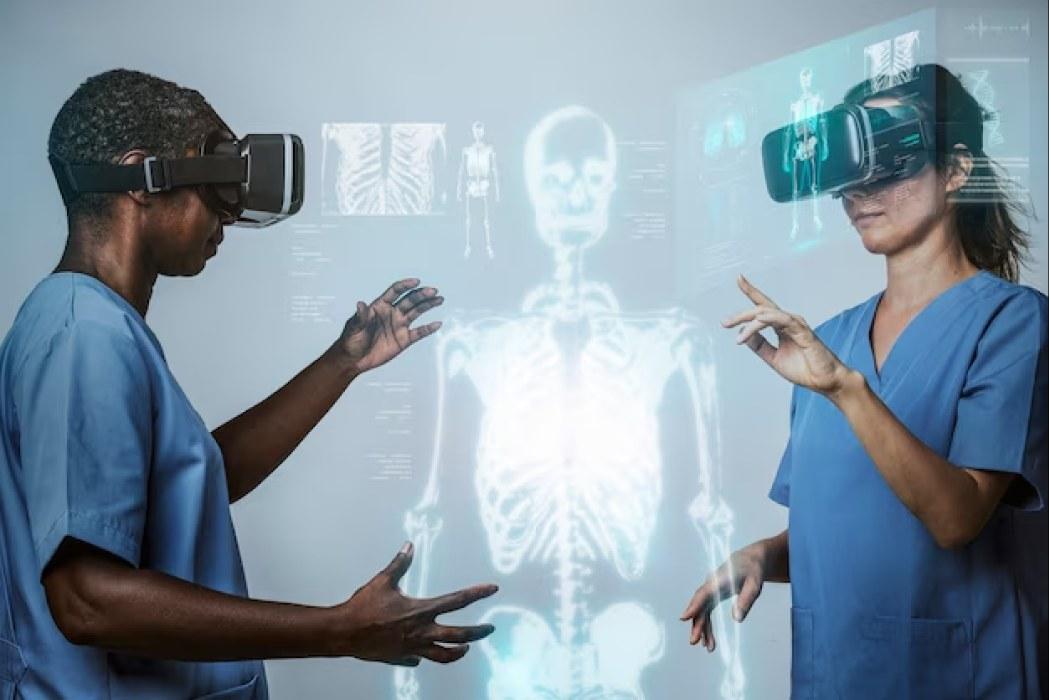The engagement of HCPs is a priority for any pharma marketing campaign. And it should be. High engagement carries immense benefits, such as increased product usage, heightened brand awareness, and fostering trust and loyalty among HCPs.
It also encourages acceptance of new pharma products and services. This not only leads to the growth of pharmaceutical brands but also benefits HCPs. They get access to the latest products and resources, enabling them to provide better patient care.
The good thing is that with the continuous rise in the adoption of digital marketing strategies, pharmaceutical brands have access to enormous amounts of data that they can use with AI to build the engagement of HCPs.
By leveraging the power of AI, pharmaceutical brands can enhance their interactions with HCPs and create engaging experiences. Before we get into the details, let’s look at the AI technologies that make this possible.
Types of Artificial Intelligence Technologies
Two powerful technologies can play a massive role in improving the engagement of HCPs.
Natural Language Processing (NLP)
Natural language processing is where intelligent systems understand natural human language and can replicate it. It’s a conversational AI that can receive user information, understand it, and respond with relevant answers.
Through natural language processing, AI tools like chatbots and intelligent virtual assistants can use speech or written text to help users perform tasks. They communicate with users like an average human would, which makes the interaction more sophisticated.
Machine Learning
Machine learning is a branch of artificial intelligence that imitates how humans learn. It can analyze historical data and identify patterns to draw inferences and predict new output values.
This technology’s algorithms receive data from a computer and improve with increased exposure to more data. That makes it progressively better at completing a task without being explicitly programmed for that particular task.
6 Ways Brands Can Use AI to Build Engagement of HCPs
The adoption of artificial intelligence is not new in the pharma market. A report by Research and Markets shows that pharmaceutical companies will spend over $3.6 billion on AI by 2026.

Brands are spending big on AI technology, and it’s time you do too.
Let’s look at some of the most common ways you can use AI to build the engagement of HCPs.
1. AI Creates Hyper-Personalization
Personalizing customers’ experiences is one of the ways for any business to build strong connections and long-term relationships with its customers. And things are not different when you want to drive engagement of HCPs and create more meaningful customer journeys.
A major way artificial intelligence can boost the engagement of HCPs is through personalization. This is particularly important in the healthcare industry because different HCPs deal with varied patient cohorts. That makes their preferences, expectations, and interest points different.
Leveraging AI for personalization involves using machine learning, natural language processing, and deep learning to analyze HCPs’ data, such as response data. You can also analyze customer data from your CRM software and sales data, such as their brand interactions.
AI will even help you draw insights that can enable you to create more accurate segments and sub-segments of your target HCPs. Use these segments to personalize communication. Remember that different HCPs will respond in various manners to your incentives.
For instance, pharmacists may respond better to price incentives, while dietitians may respond better to nutritional rebates. By using AI to analyze your data, you can identify behavioral patterns that predict the behavior of HCPs in response to the incentives you offer.
Use these insights to create personalized offers, discounts, and other incentives. In the same way, you should personalize the channels used to engage HCPs based on their preferred choice, such as social media, email, etc.
Customer education, as well, should be personalized based on the patient cohort the HCP serves.
2. It Facilitates Better Targeting
Through the use of predictive analytics and machine learning, you can achieve high HCP engagement. That’s because it can help you identify professionals most likely interested in your brand and the best time to approach them.
In a sea of HCPs, you can point out the most relevant ones and reach out to them in a personalized way. It helps you direct your marketing resources to where you will likely get the highest return for every dollar spent.
Let’s look at some of the ways AI helps with targeting and improving the engagement of HCPs:
- Predictive modeling can analyze the past behavior of your customers and identify patterns that can predict their future behavior. You can use this information to adopt more effective marketing strategies that will likely make them behave in the desired way.
- Clustering algorithms can help create ultra-precise customer segments. This involves grouping data points based on similarities. You can place HCPs with similar characteristics in one segment and use targeted messaging to boost engagement.
- As mentioned, natural language processing synthesizes human language and speech. It can help you analyze customer feedback and identify HCPs who are unhappy. You can then group them separately and use the insights you get to generate a campaign that turns them into happy buyers.
By engaging HCPs well, you can turn them into brand ambassadors who can market your brand to others.
3. Chatbots Can Boost the Engagement of HCPs
Chatbots are one of the tools you need to boost the engagement of HCPs.
We’re in an “always on” world, and buyers expect round-the-clock support. In addition, most HCPs work odd hours, which makes 24/7 access to assistance an effective way to engage them. Natural language processing is the leading AI technology that powers chatbots.
With the use of human-like language in the form of voice or text, chatbots can:
- Engage HCPs to help them understand your products better and give them an easier time in decision-making.
- Communicate about your new medical products and diagnostic devices with HCPs.
- Give instant replies to HCPs’ queries about user information, product demos, catalogs, etc.
- Engage HCPs better by sending images and videos related to your products.
Besides, when a healthcare professional uses the chatbot to query a particular product, it can automate notifications for the HCP about the product they showed interest in. It keeps your brand in their minds as a viable source of solutions to their needs.
AI-driven chatbots can also store the conversations held with HCPs. This conversational data can provide insights into the pain points of HCPs and help identify areas where end users are having trouble using your products.
You’ll learn about areas where you can offer more services to HCPs and deliver more excellent value.
4. AI is Effective in Educating HCPs
One of the best ways to create engagement among HCPs is to provide continuous and valuable education. HCPs need regular education to stay current with the latest advancements in the medical field and treatment options.
But while providing education is essential, conducting face-to-face interactions with HCPs is not easy. Besides, the education you provide each HCP will depend on their patient cohort. This means you’ll need to create training material tailored to each HCP’s needs, increasing your task load.
This is where AI steps in to simplify things. For instance, you can use AI-text video generators to create high-quality training videos for all your HCPs.
You can quickly generate a video that looks realistic enough to pass for human-generated content by inputting text into the AI video generator. You can even include a custom avatar with a human voice to explain the scope.
If you have existing videos, you can use AI video generators to edit these videos to create new content customized for different segments of your target market.
Embed these educational resources in your marketing materials. Or, if you have a resource page on your website, publish your training material. Have an AI-powered search feature on your website that can provide personalized recommendations for educational content based on an HCP’s interests.
This means HCPs will have a smooth time finding the most relevant education and getting real-time answers to their questions.
5. AI-Powered Virtual Assistants
According to a report on “The Current State of Global Customer Experience in Pharma” by DT Consulting, the overall customer experience that pharma companies are giving HCPs is only ‘average’ when it should be excellent.
The study, for instance, showed that pharma companies do not provide HCPs with the updated clinical data they need.
Only 50% of HCPs had received new clinical data in the last three months. And 91% of HCPs who hadn’t received this data said they would like to receive it in the future.

What’s more?
Unmet content needs are just one of the areas in which HCPs fail to provide an exceptional customer experience to HCPs. And AI can help provide HCPs with better and faster customer service through intelligent virtual assistants.
These are chatbots powered by AI and machine learning, like the ones listed by Attrock, and can provide 24/7 support to HCPs. Intelligent virtual assistants can provide personalized responses to HCPs’ questions by pulling data from your knowledge bases and other educational resources.
They can also provide HCPs with the content that they need. These AI-powered tools can support technical issues and offer lightning-fast answers to billing questions and other pressing issues.
One of the best things about intelligent virtual assistants is that their machine-learning algorithms improve over time as they interact with more customers and analyze user interactions. By serving HCPs efficiently, you improve their overall experience and boost engagement.
6. The Integration of AI and Virtual Reality (VR)
Virtual reality is one tactic pharma companies use to build the engagement of HCPs. Through it, they can make their content more immersive by creating a 3D, 360-degree environment. They can transport HCPs into impossible environments, such as the human body at a cellular level, to teach them better.
Mechanism of action animation, for instance, is one of the strategies that pharmaceutical companies use when educating HCPs and marketing their products.
By demonstrating how a drug or other substance creates its pharmacological effect on the body, it becomes easier to convince HCPs about the value of a pharmaceutical product.
Using VR in the mechanism of action makes it engaging for HCPs. It gives HCPs a 3D-generated experience of being in the bloodstream, penetrating cells, and delivering healing compounds into the cells. It creates an unforgettable experience.
So where does AI come in?
What Does AI Do?
Artificial intelligence can make these experiences even more compelling by introducing intelligent, interactive avatars into the VR simulation that act as virtual assistants.
Instead of taking the Q&A session outside the VR experience, these avatars powered by machine learning and natural language processing can respond to HCPs’ questions using detailed and highly-customized answers and provide assistance where needed — all within the VR experience.
It makes the VR experience genuinely compelling and immersive, which builds the engagement of HCPs. You can create a VR experience combined with AI-powered virtual assistants when educating HCPs on complex concepts and ideas.
This mode can also help you draw empathy by using the avatar to tell the story of how your products can improve the patient’s journey using deep visualizations of their diseased states and conditions.
Virtual reality combined with artificial intelligence can also help you create and share realistic visualizations of physiological processes. It’ll be more effective at building engagement of HCPs than trying to educate them using dozens of pages of text and complex descriptions that do nothing to build their interest.
The extraordinary experience that AI-enhanced VR experiences provide and the engagement of HCPs that it creates also make it an effective way for new pharma companies to develop brand awareness.
Summary
There are numerous benefits of implementing AI. Engagement of HCPs is just one of the ways it can contribute to the growth of your brand.
Investing in chatbots, AI-enhanced virtual reality experiences, and intelligent virtual assistants can provide an out-of-the-box experience to HCPs that builds engagement.
Don’t forget about the treasure in your possession: customer data. Use AI to analyze this data to send personalized messages and create targeted marketing campaigns.
Apply these tactics to experience a boost in the engagement of HCPs with your brand.















Leave a Reply